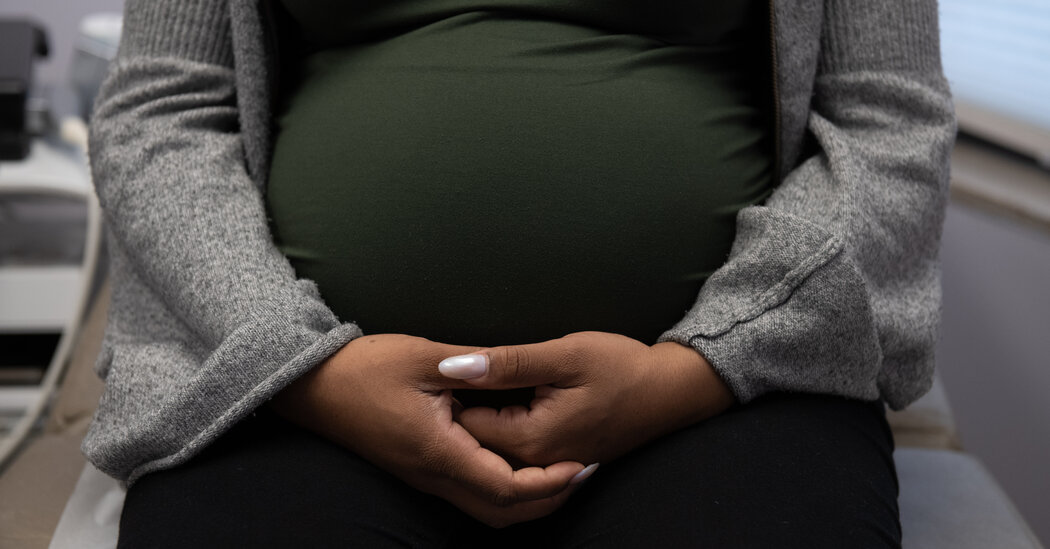The Food and Drug Administration has approved a blood test that can identify pregnant women who are at imminent risk of developing a severe form of high blood pressure called pre-eclampsia, a leading cause of disability and death among childbearing women.
The condition disproportionately affects Black women in the United States and may have contributed to the recent death of Tori Bowie, a track star who won gold at the 2016 Olympics. Two Black teammates of Ms. Bowie — Allyson Felix and Tianna Bartoletta — also developed pre-eclampsia during their pregnancies.
The new test may offer an early warning, identifying which of the many pregnant women who have suggestive symptoms will go on to develop the life-threatening disease within the next two weeks.
“It’s groundbreaking. It’s revolutionary,” Dr. Doug Woelkers, a professor of maternal fetal medicine at the University of California, San Diego, said of the test. “It’s the first step forward in pre-eclampsia diagnostics since 1900, when the condition was first defined.”
To what extent the test will improve outcomes and save lives is not clear, however, as there is no effective treatment for pre-eclampsia, which usually eases after birth.
“We don’t have a therapy that reverses or cures pre-eclampsia other than delivery of the baby, which is more like a last resort,” Dr. Woelkers said.
The new blood test, made by Thermo Fisher Scientific, has been available in Europe for several years. It is intended for pregnant women who are hospitalized for a blood pressure disorder in the 23rd to 35th weeks of gestation.
The test can tell, with up to 96 percent accuracy, who will not develop pre-eclampsia within the next two weeks and so can safely be discharged from the hospital. Two-thirds of the women who get a positive result, on the other hand, will progress to severe pre-eclampsia in that time, and their babies may need to be delivered early.
Distinguishing between the two groups of women is a challenge that has long vexed physicians.
“The warning signs of pre-eclampsia are not very specific,” said Dr. Sarosh Rana, a professor of obstetrics and gynecology at the University of Chicago who has studied the test. “A lot of women will have edema and headaches.” (Edema means swelling.)
“But we don’t really know who among those patients is at higher risk for the really adverse outcomes,” she said.
Pre-eclampsia affects about one in 25 pregnancies, and the incidence has been on the rise in recent years in the United States. The problem usually starts about halfway through a pregnancy, though it can also occur after childbirth. It can lead to a condition called eclampsia, which can lead to seizures and death.
Black women in the United States have pre-eclampsia rates much higher than those of white women, and they are three times as likely as white women to suffer kidney damage or death from pre-eclampsia. Black women are also more likely to lose their babies.
The blood test measures the ratio of two proteins that are produced by the placenta. A study published in NEJM Evidence in November tracked 1,014 pregnant women hospitalized with a hypertensive disorder of pregnancy at 18 medical centers in the United States from 2019 through 2021. Just under one-third were Black, and 16 percent were Hispanic.
The researchers found that the two proteins were greatly unbalanced in the blood of women who developed severe pre-eclampsia. Those with the widest ratios had a 65 percent chance of progressing to severe pre-eclampsia and of delivering their baby within two weeks, either spontaneously or through induction.
“If your levels are among the highest, you deliver in a few days,” said Dr. Ravi Thadhani, an author of the study.
Women who have symptoms suggesting pre-eclampsia but who test negative can be reassured and sent home, but they may need to have the test repeated every two weeks, Dr. Rana said.
Pre-eclampsia develops precipitously, and without the blood test, the warning signs can be vague.
“A woman can go from feeling fine and being completely healthy and having normal kidney and liver function, and within 24 to 48 hours those organs can fail and she develops brain swelling and seizures,” Dr. Thadhani said. “That is the scary part of the disease.”





